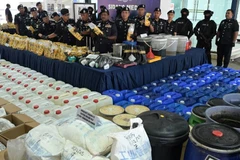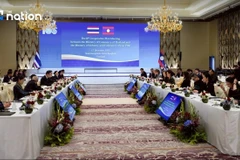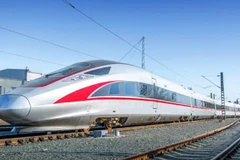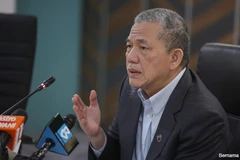Jakarta (VNA) - Indonesian authorities have rescued 35 people after a ferry carrying 65 passengers sank near Bali on the night of July 2.
At a press briefing on July 3, Indonesia's national search and rescue agency chief Mohammad Syafii confirmed that five people died in the incident and 25 are still missing.
President Prabowo Subianto, who was on a trip to Saudi Arabia, ordered an immediate emergency response, cabinet secretary Teddy Indra Wijaya said in a statement on July 3, adding the cause of the accident was "bad weather".
Java-based Surabaya search and rescue agency head Nanang Sigit, said a rescue team of at least 54 personnel including from the navy and police were dispatched along with inflatable rescue boats while a bigger vessel was later sent from Surabaya city to assist the search efforts.
Waves as high as 2.5 metres with strong winds and currents had affected the rescue operation, he stressed.
Preliminary manifest data showed that the ferry was carrying 53 passengers, 12 crew members, and 22 vehicles of various types.
The Ministry of Transportation reported that the ferry may have carried 67 people and 25 vehicles when it encountered trouble. The ministry confirmed that all passengers were Indonesian nationals.
The KMP Tunu Pratama Jaya sank approximately 30 minutes after departing from Banyuwangi port in East Java province, bound for Bali island./.



























